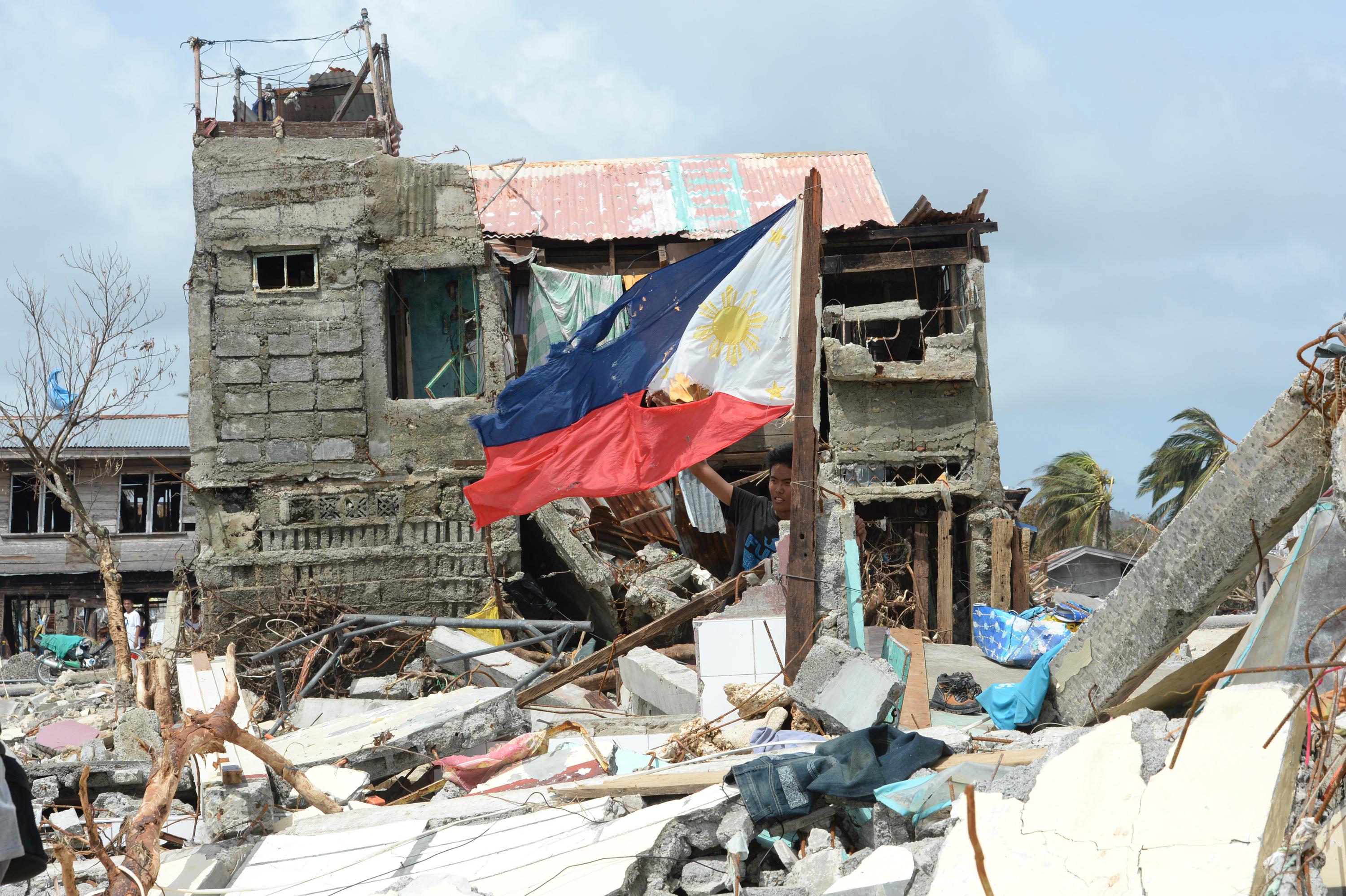In an earlier post, I talked about how the economic conditions in the Philippines could play a role in the severity of the damage caused by Typhoon Haiyan, but what about the country’s politics?
The Philippines is classified as “partly free” by Freedom House and has endemic problems with corruption and cronyism. But the country is an electoral democracy with an increasingly open political process, and recent progress has been made in reaching a peace deal with the Moro Islamic Liberation Front and tackling corruption. Will improving democratic conditions in the country make any difference in the country’s disaster relief efforts? They could.
Events like earthquakes, typhoons, and droughts are acts of God and politically neutral. (Let’s ignore climate change for the moment.) But the level of development in a country will often determine the extent of the damage. Chile, for instance, experienced a more severe earthquake than Haiti in 2010, according to the Richter ccale, but only a fraction of the death toll.
There’s some research to suggest that democracies are better at preparing for disasters and responding to them than autocracies. Take for instance, Burma’s blocking of international aid after Cyclone Nargis or China’s crackdown on those who questioned the shoddy construction that made the death toll from the 2008 Sichuan earthquake much higher than it needed to be.
Nobel Prize-winning economist Amartya Sen famously argued that famines do not occur in functioning democracies, because democracies ”have to win elections and face public criticism, and have strong incentive to undertake measures to avert famines and other catastrophes.”
In a 2002 paper, London School of Economics economists Timothy Besley and Robin Burgess built on this argument in a study of how Indian regions responded to falls in food production and crop flood damage. They found that Indian states “where newspaper circulation is higher and electoral accountability greater” were far more responsive in responding to people’s needs in the wake of disasters.
In 2010 Alejandro Quiroz Flores and friend of the blog Alastair Smith developed the idea further, arguing that democratic countries have greater incentives to prepare for disasters and put response systems in place than autocracies. “You have a better chance surviving a disaster in a poor democracy than a rich autocracy,” Smith says.
In democracies, leaders take a political hit when casualty numbers are high and the response by authorities is perceived as inadequate. (Think Bush after Katrina.) If the number of casualties is low and the response and the authorities are seen as responsive, a leader can even benefit politically. (Think Obama after Sandy.)
The incentives work differently for autocracies. Leaders depend not on public support but on the loyalty of their closest followers. So funds that could be spent on improving infrastructure or developing disaster response systems are better spent on enriching the leader’s cronies.
Disasters can hurt autocratic governments by concentrating displaced people in small areas and giving opposition leaders a focal point to rally around. The paper argues that the anti-government protests that followed the 1985 Mexico City earthquake helped the city develop a stronger civil society, leading eventually to the direct election of the city’s mayor and the erosion of the PRI party’s monopoly on power. Patrick Meier argues that online organizing in the wake of disasters can serve a similar function.
Of course, just because a government is ostensibly democratic doesn’t mean that it’s effective. Tahir Imran argues that Pakistani dictator Pervez Musharraf’s response to a devastating 2005 earthquake was better than democratically elected President Asif Ali Zardari’s response to the floods of 2010. When dictators want to, they can mobilize resources quickly, as opposed to corrupt or incompetent democratic governments.
Here’s where the bad news comes in for the Philippines. The country’s infrastructure is in rough shape after years of underinvestment. With one recent president convicted of corruption and another charged with election fraud, it would be totally understandable for Filipinos to be skeptical of their leaders.
An AP story argues that the Philippines “lacks a strong central government and provincial governors have virtual autonomy in dealing with local problems,” in contrast to fellow storm victim Vietnam, where the “centralized, Communist Party-led government broadcasts clear messages that cannot be ignored by the provinces.”
Indeed, there’s already something of a blame game developing between President Benigno Aquino III and the local authorities in devastated Tacloban city. Hopefully this controversy will put some pressure on authorities to take steps to prevent the next storm from being quite so deadly.
